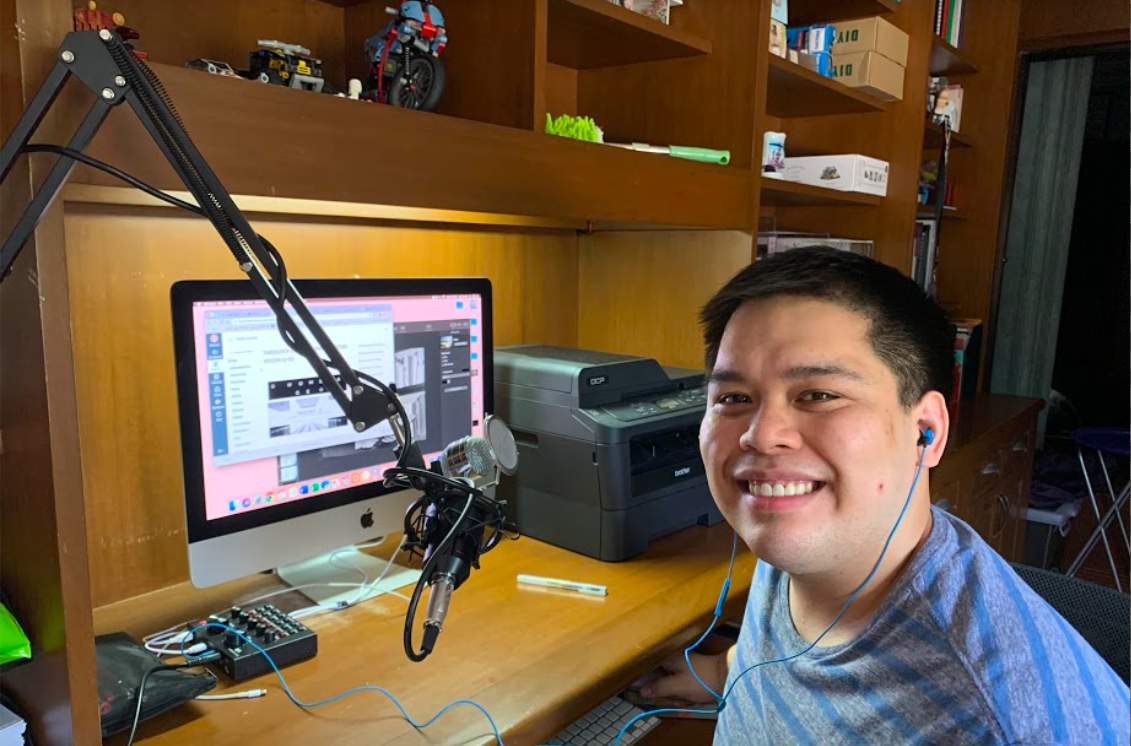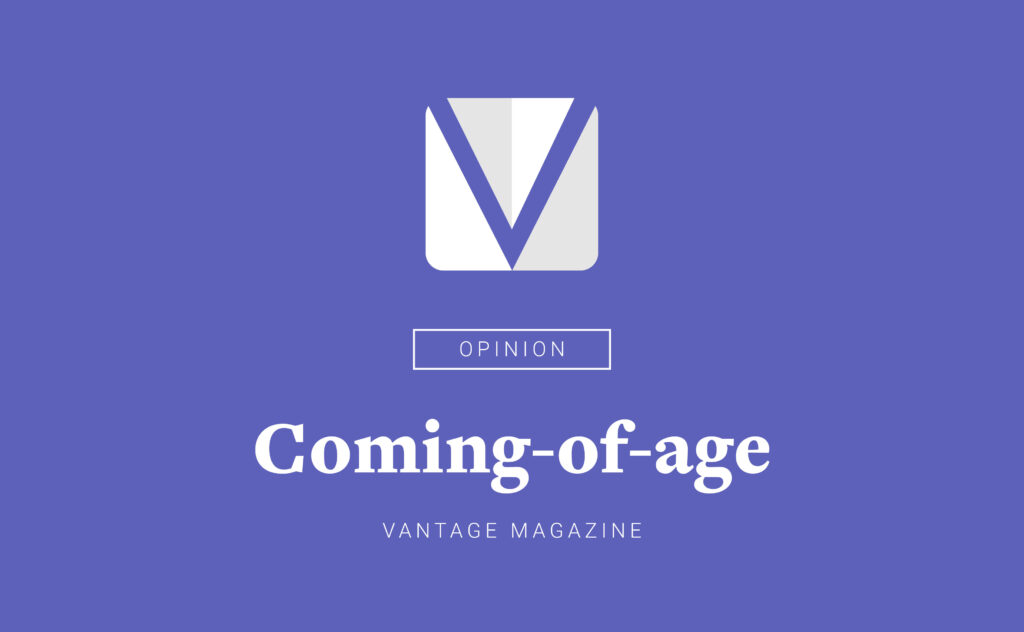You’d expect Mr. John Lenon—a relatively fresh graduate—to be unfazed with the shift to online learning. However, teaching Theology in this very impersonal set-up offers quite a challenge for the young professor. “Personal interaction is really important [when teaching the concepts Theology],” he shares. “I teach Theo with the immersion [program] and it becomes even more difficult now, because how do you teach social issues from a TV screen?”
Bridging the impersonal gap between the student and professor has been his main focus when asked about overcoming his apprehensions regarding the shift. “I don’t want my students to just read stuff. I’d rather that they see me so they see my theatrics, hear my voice, follow my gestures,” he says.
“It takes a lot of work and nakakapagod siya (it’s tiring) actually,” he continues as he emphasizes his goal to deliver the lectures with that same signature kick.
Lenon admits that adjusting his classes to the online set-up has been quite a challenge. “[It’s in] the course title: The Theology of a Catholic Social Vision. So a lot of social interaction is required,” he shares. He laments that a lot of interpersonal dynamics has to get thrown out the window. “If you were to look at the content that we are delivering online right now, it would be just 30-40 percent of what it would’ve been in a real, actual class. That’s kinda heartbreaking for us.”
However, there have been some positive aspects in this new set-up. “It gave a lot of opportunities for introverts to participate,” he shares. “There were alot of students, sabi nila they were introverts [and] they didn’t like reciting in class, pero sa online setting ang daldal ng mga tao.”
The amount of input he received from the discussions in the forums was refreshing for him, as in the normal set-up he felt as if he was the only one talking in class. “In the online setting, there’s opportunities for students to talk [and] engage the subject matter with each other,” he continues.
In an effort to ensure that no student is left behind, Lenon ensures the accessibility of the learning experience. Lenon does everything he can to ensure that all his students get to keep up with the module being discussed. This includes transcribing every video he uploads in his modules and reaching out to students individually if they are having a hard time with the set-up.
Thankfully, the Theology department and the Ateneo administration have been a godsend for professors during the new normal. Over the summer, professors banded together to create modules, share tips and answers to frequently asked questions, as well as attended training seminars courtesy of the Ateneo Institute of the Science and Art of Learning. “I would say that the community vibe of the Ateneo really kicked in in the pandemic,” he shares. “Despite us being isolated, I ironically didn’t feel like I was alone in this.”
If there’s one piece of advice Lenon wants to share to both students and professors alike, it’s to be kind to themselves. “I want them to understand that this is new for all of us—not just students, not just teachers. There’s no such thing as an expert. We are all starting from zero,” he shares. “We need to be patient with each other, yes, but we need to be patient with ourselves.”
“It’s called a new normal for a reason—it’s new for everyone,” he concludes. “We are not going to be left out in the wild; the community is strong, and we’ve got each other’s back.”






